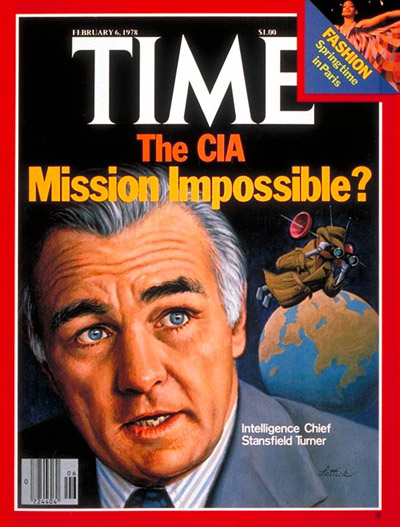
Best not to appoint new CIA director too quickly says former Director Stansfield Turner
Best not to appoint new CIA director too quickly
By Stansfield Turner
WASHINGTON - The worst way out of the crisis now facing the American intelligence services is to appoint a new Central Intelligence Agency (CIA) director as soon as possible.
With Mr George Tenet's resignation, some people argue that the times are too perilous for the CIA to have only an acting director. In fact, there is no way to have anything but an acting director until after the election.
Members of the intelligence community are not going to change at the behest of a director whose tenure may be only three months. They will simply stall if they do not agree with the course the director sets.
I speak from experience: They did it to me in the last several months of my tenure as director while they waited to see if then-president Jimmy Carter would be re-elected.
Even if a new appointee were able to win the support of the agency, it would be very disruptive to the CIA to undergo a change of leadership now and another in autumn if Senator John Kerry wins the election.
This is especially true if Mr Kerry carries out his plan to reorganise the intelligence community by creating a new position, director of national intelligence. (Full disclosure: I serve the campaign as an adviser on intelligence issues.)
Of course, Mr Kerry would be free to keep the new director in the position, as President George W. Bush did with Mr Tenet. But it is unlikely that any of the rumoured candidates - with a few exceptions, like former senator Sam Nunn, they are Republicans - would be acceptable to Mr Kerry.
I became director of CIA in part because my predecessor, Mr George H.W. Bush, was considered too partisan.
There is more than politics at stake. If the Senate Intelligence Committee's report is to be believed, major changes in personnel at the CIA are urgent and necessary from a purely professional standpoint.
For instance, the report tells of the supervisor of an analyst who warned that the only source of the report that the Iraqis had mobile biological weapons laboratories was unreliable. This manager dismissed the information on the grounds that it did not make any difference; the decision had already been made to go to war.
This attitude is corrosive to the most basic principle of intelligence - telling it like it is - and this manager must be told that there is no place for him or her in the CIA.
The committee's report has enough other similar accusations that a thorough house-cleaning is in order.
The CIA director is the only officer of the executive branch who can dismiss employees secure in the knowledge that they have no recourse to appeal their firing.
Mr John McLaughlin, Mr Tenet's former deputy and the acting director as of last week, should exercise that authority. He knows the people and the system.
Beyond that, the new director should not be burdened with such unpleasant disciplinary decisions immediately upon taking office. Mr McLaughlin, a veteran CIA officer, is well qualified both to act as director until after the election and to deal with whatever cleanup is needed.
Some of the President's advisers may believe that there is a political advantage to appointing a new CIA director quickly. But such considerations should not determine how we solve our nation's intelligence crisis.
# The writer, who teaches public policy at the University of Maryland's school of public policy, was the CIA director from 1977 to 1981. NYT Syndicate
